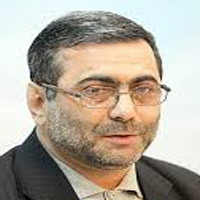Demographic Strategies For Consolidation The National Authority And Security Of The Islamic Republic Of Iran
The quantity and quality of the population have long been considered as one of the main factors affecting the various dimensions of national authority and security. Demographers say demographic variables, especially population growth rates and fertility rates, are currently inappropriate and have presented warnings. On the other hand, studying the dimensions and constituents of authority and national security indicate that there are demographic indicators in it. The high impact of demographic indicators on national authority and national security and the inappropriate process of these indicators led to this study to be taken into account and how these indicators were reviewed, so that the results could provide areas for effective decision making and avoidance of surprise.The research was carried out in three areas of population, authority and national security, applied in a randomized and mixed manner. The qualitative analysis of literature led to the indexation of 35 demographic indicators. Subsequently, with the design and implementation of the questionnaire, 49 experts from 12 community and security research centers were interviewed. Due to the lack of statistical population and their dispersion in different centers, samples were randomly selected, targeted and quoted.The results of the questionnaire were quantitative and qualitative (statistical analysis and intellectual storm) in the SWAT process, which led to the quadratic points and, finally, six population strategies, along with its implementation mechanisms, that some strategies to restore the population and some to consolidate the authority and National Security pays.
-
The Gaza crisis and its impact on the interaction/ Conflict of the structure and agent (Turkey case study)
Hassan Sadeghian *, Mohammadbagher Khorramshad
A Quarerly Journal of Political Studies of Islamic World, -
Revolution and Earth; Agrarian Reforms and Land Policy of Revolutionary Socialist States
Mohammadjavad Moosanezhad *, Mohammadbagher Khorramshad
Studies the State,



